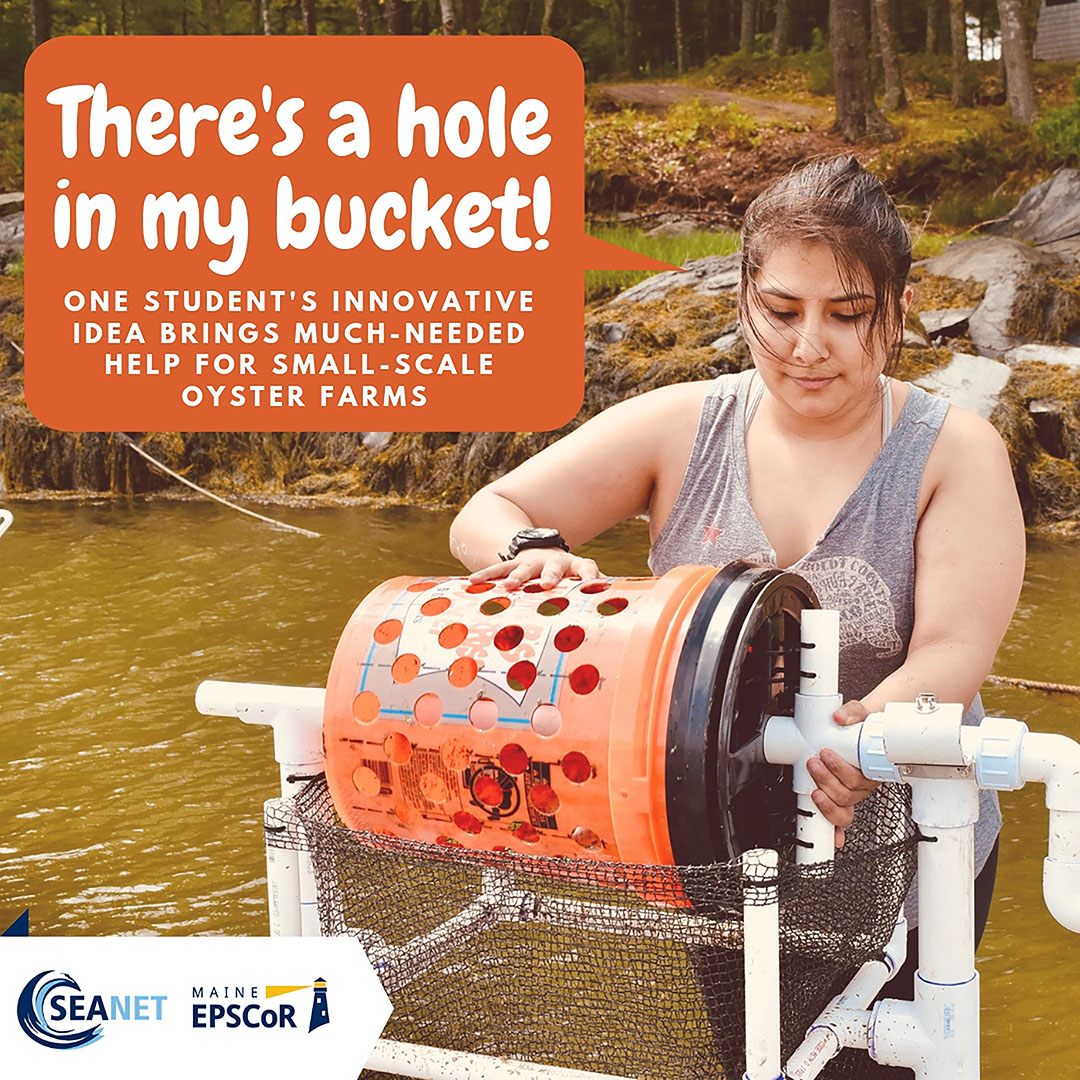
There’s a Hole in my Bucket: Innovations in Oyster Sorting
Innovation Brings Much-needed Help for Small-scale Oyster Farmers
Small-scale oyster farms face a variety of challenges. One of the biggest is sorting oysters manually, which is a time-consuming and labor-intensive process, especially with a small crew. One of Maine EPSCoR’s SEANET Bioregional Fellows, with the help of Dr. Joshua Stoll, has found a solution to this specific problem.
When Josephine Roussell approached the University of Maine’s Marine Science faculty applying for potential research opportunities, she found Stoll’s idea intriguing: What if we could design a low-cost product, capable of eliminating hours of manual labor for oyster farmers? Roussell accepted a fellowship in Stoll’s lab and the two have been hard at work on their oyster sorter project ever since.
The current oyster sorter prototype uses a 5-gallon bucket, turned into a tumbler drum, with different sized holes drilled into the bucket’s wall to help farmers efficiently sort oysters according to the size of their shells. While this product is much smaller than commercial-sized oyster sorters, it also costs far less to produce. The compact design also makes it far easier for farmers to bring onboard their boat. Even commercial operations may find the transportability of the sorter valuable.
Roussell and Stoll have been accepted into the Maine Innovation, Research, and Technology Accelerator (MIRTA) program, where they will receive mentorship and support for their oyster sorter design. MIRTA is made possible by the University of Maine System 2018 Research Reinvestment Fund; a pool of competitive internal grants allocated to advance research projects along the path from discovery to becoming commercial products with public benefit. Roussell is currently speaking to oyster farmers regarding their work to gauge the potential market size for the sorter.
“Preliminary research shows there is interest in the product,” Roussell stated. Once the market research aspect of the project is complete, they will have a better idea of which specific business model to move forward with.
Through her SEANET Bioregional Fellowship, Roussell has fine-tuned her professional ambitions and developed a financially viable vision for aquaculture in Maine and beyond. She graduated in August 2018 with a B.S. in Marine Science and a minor in Fisheries.
“The Bioregional Fellowship had everything to do with growing my passion for aquaculture,” Roussell said. “I developed this greater understanding of aquaculture and how integral it is to growing economic revenue.”
Roussell sees the oyster sorter as a national and international investment into the future of aquaculture. But right now, her primary focus is getting the product into the hands of Maine oyster farmers.
